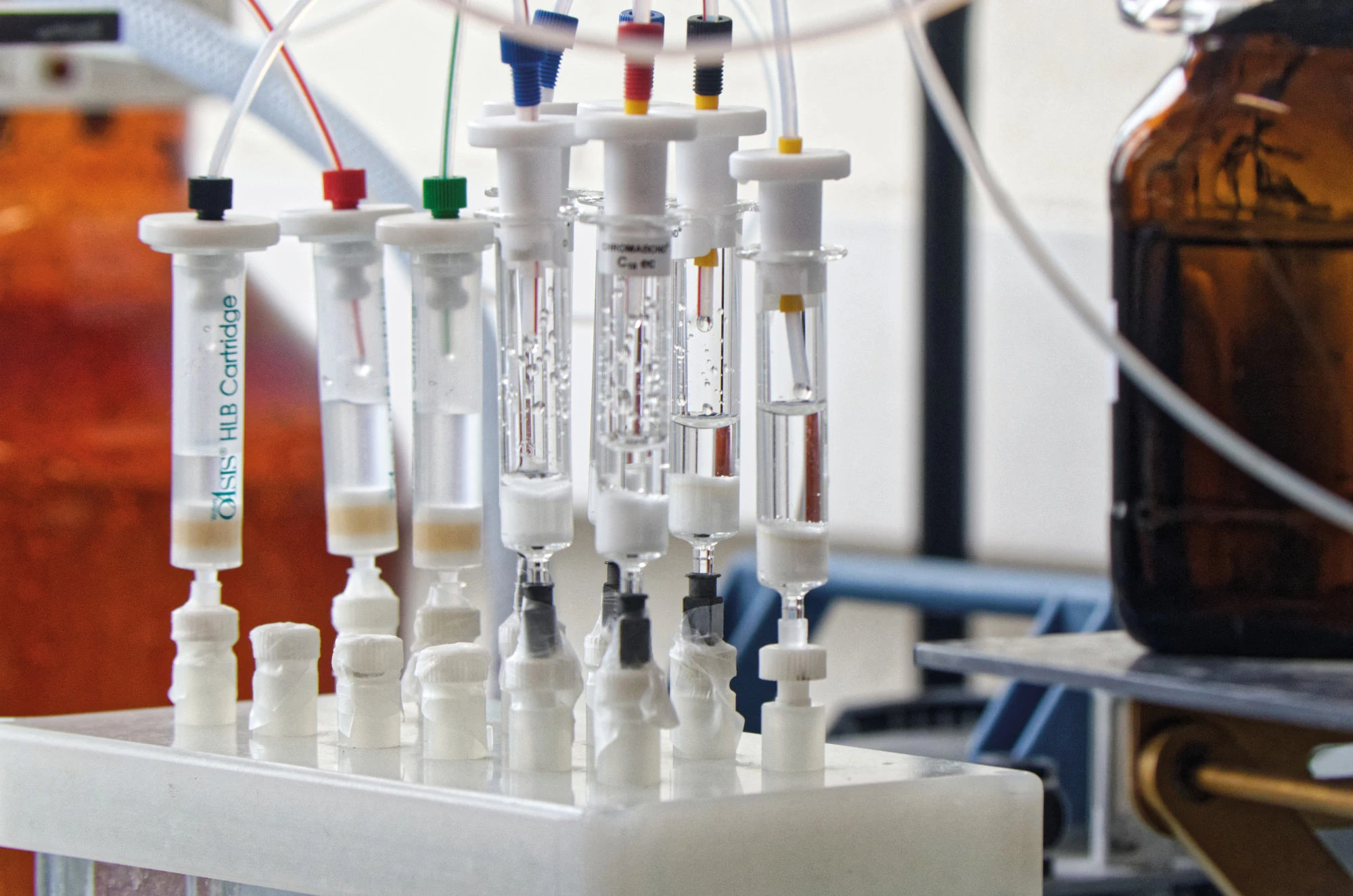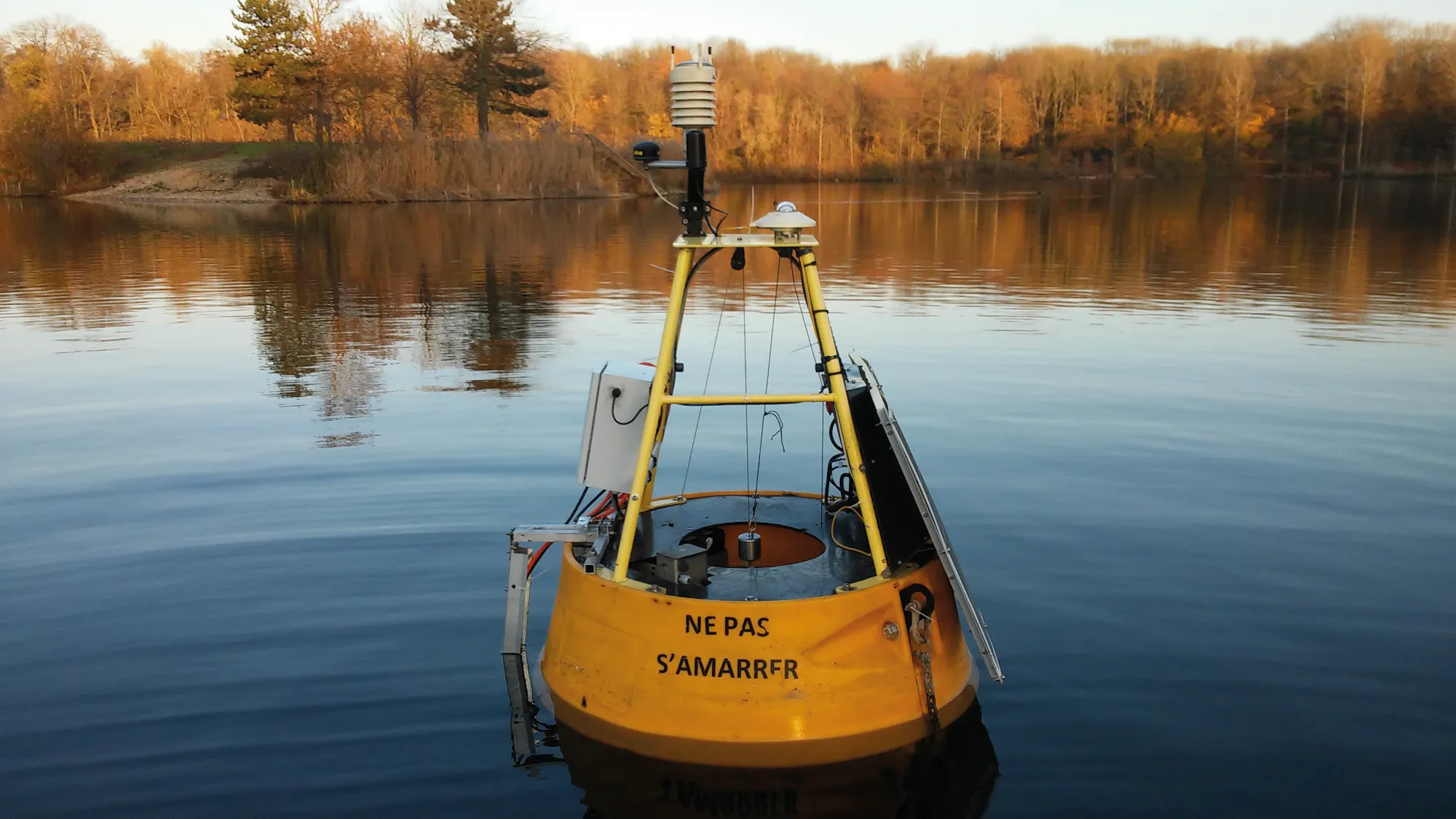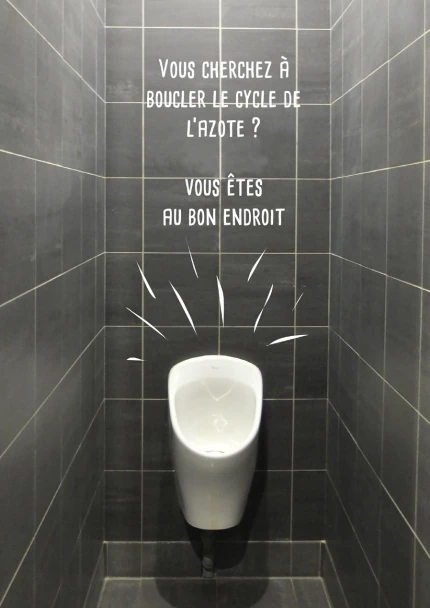- Recrutements
- Contacts
- Annuaires
- Choix du langage :
Dernières publications
935.
- titre
- Assessing water quality restoration measures in Lake Pampulha (Brazil) through remote sensing imagery
- auteur
- Alexandre Assunção, Talita Silva, Lino de Carvalho, Brigitte Vinçon-Leite
- article
- Environmental Science and Pollution Research, 2025, ⟨10.1007/s11356-025-35914-6⟩
- titre
- Do suspended particles matter for wastewater-based epidemiology?
- auteur
- Gauthier Bernier-Turpin, Régis Moilleron, Chloé Cenik, Fabrice Alliot, Sabrina Guérin-Rechdaoui, Thomas Thiebault
- article
- Water Research, In press, 280, pp.123543. ⟨10.1016/j.watres.2025.123543⟩
- titre
- Plastic debris dataset on the Seine riverbanks: up to 38 000 pre-production plastic pellets reported per square meter
- auteur
- Romain Tramoy, Laurent Colasse, Johnny Gasperi, Bruno Tassin
- article
- Data in Brief, 2025, pp.111735. ⟨10.1016/j.dib.2025.111735⟩
- titre
- La persistance des champs d’épandage d’eaux usées de l’agglomération parisienne au cours du second XXe siècle
- auteur
- Etienne Dufour
- article
- Métropolitiques, 2025, ⟨10.56698/metropolitiques.2174⟩
- titre
- Stock and vertical distribution of microplastics and tire and road wear particles into the soils of a high-traffic roadside biofiltration swale
- auteur
- Max Beaurepaire, Tiago de Oliveira, Johnny Gasperi, Romain Tramoy, Mohamed Saad, Bruno Tassin, Rachid Dris
- article
- Environmental Pollution, 2025, 373, pp.126092. ⟨10.1016/j.envpol.2025.126092⟩
Tenured researcher position at Ecole des Ponts ParisTech / FRANCE - Urban water systems modelling (March 2024)
2024
publié le , mis à jour le
2024
Tenured researcher position at Ecole des Ponts ParisTech / FRANCE
Urban water systems modelling
Application
More information :
https://www.concours.developpement-durable.gouv.fr/charge-e-de-recherche-du-developpement-durable-de-a126.html
([position CR 05])
Deadline for application : March 15 2024
Context of the position
Adapting cities to global change, and in particular to climate change, which is putting increasing pressure on surface and groundwater resources, is creating new challenges that will require far reaching changes in the way urban water systems are managed. The current system of segmented management of surface and underground aquatic environments, drinking water, wastewater and stormwater will not be able to meet the coupled challenges of securing water supplies, resilience to extreme climatic events and preservation of aquatic ecosystems in the city of tomorrow. New concepts of integrated urban water management have emerged. Recent trends aim to achieve greater water circularity in cities. This involves rethinking the way we manage excreta (separation and recovery at source) outside the water management system, mobilizing alternative water resources (rainwater harvesting, grey water recycling) to cope with increased drought and meet new needs (urban agriculture, urban cooling), and deploying at-source stormwater management to respond to rainfall extremes and soil water recharge.
While some of the proposed solutions (e.g. at-source stormwater management, separation and recovery of excreta and grey water) have already been technically assessed, this assessment remains partial, generally on a project scale, and segmented in terms of issues. These solutions have not yet been evaluated on a city-wide, integrated scale. Their coherence, complementarity or competition, or their conditions of articulation with the pre-existing system, still need to be analyzed in order to assess their contribution to the development of a new paradigm.
Integrated modeling of different innovation deployment scenarios is required to assess their impact on a city-wide scale. The following impacts will need to be taken into account : impact on the quantity and quality of water resources, environmental impacts, impacts on comfort and urban amenity, energy balance, economic viability.
Particular attention must also be paid to the consequences of disseminating decentralized innovations on the operation of existing urban water systems (drinking water and wastewater networks, treatment plants, etc.). The modeling approach will also enable us to assess deployment scenarios in terms of the city resilience to global changes (climate change, urban densification, population growth, regulations, etc.).
While many models exist, each representing a part of the urban water management system (drinking water or wastewater or stormwater), or a specific issue (hydrology, pollutant flows, urban climate, energy, economy), the development of an integrated modeling framework remains a challenge. Different types of models need to be considered : systems modeling to describe the interactions, at city scale, of the various components of the urban water system (drinking water, wastewater and runoff, water resources) ; physical and/or conceptual models to describe processes linked to hydrology (evaporation, evapotranspiration, exchanges with surface and underground receiving environments) and pollutant flows.
Representing socio-technical innovations and their impacts on a city scale means rethinking the modeling of urban water management systems : imagining the city(ies) of the future in terms of different socio-economic trajectories, conceptualizing city evolution scenarios, coupling different modeling approaches and spatial resolutions.
In addition, the emergence of new knowledge and observation techniques over the last decade has revolutionized environmental measurement and the characterization of urban space. Open access to high-frequency datasets and digital data portals (e.g. satellite images or climate model outputs) is enabling a breakthrough in the implementation of city-scale modeling. These data require validation, analysis and processing methods that differ from those available on the market to date. They also enable innovative modeling approaches to be developed, taking into account the heterogeneity of the urban system and the diversity of solutions used for urban water management.
Job content
The person recruited will join the group of Leesu researchers working on the urban water system. His/her research will be part of a high-level national (SNO Observil, Urbis, ZA Seine) and international network. The researcher recruited will be responsible for developing tools to model the deployment of innovations and their impacts on a city scale. He/she will coordinate the construction and evaluation of different scenarios for integrated urban water management in a context of ecological transition. This recruitment will strengthen Leesu’s modeling resources and enable it to assert and develop the skills required to play an active part, in the optimization of the urban water system, in the emergence of the city of tomorrow, which will be a resilient city with a low environmental footprint.
The researcher will be keen to establish or pursue collaborations within Paris-Est Sup, the IPP (Institut Polytechnique de Paris) and with external French, European or international partners.
Research work will be carried out within the framework of existing or future programs and projects. In the latter case, the researcher will be involved in or may be entrusted with setting up projects (in particular, scientific content and resources to be implemented). The researcher may also be involved in training and teaching activities relating to his/her areas of expertise.
Finally, the researcher is expected to invest in supporting ENPC students (courses, projects, scientific internships), and in introducing them to the issues involved in managing the urban water system in a context of ecological transition.
Expected Profile
PhD in quantitative hydrology, environmental engineering, mathematics applied to hydrology, geophysics or related field.
Skills :
– Modeling (mathematical conceptualization, numerical methods)
– Programming languages (e.g. Python)
– Hydrology, hydrogeology, urban hydraulics
– Applied mathematics, statistics,
– Data science, big data
– Digital and geomatic tools (Git, GIS...)
Recommendations
The candidate is expected to propose in his/her application a scientific project for the position coherent with the activities of the hosting research unit/team and is therefore strongly encouraged to contact the persons indicated.
Voir en ligne : Tenured researcher position at Ecole des Ponts ParisTech / FRANCE









 Productions scientifiques
Productions scientifiques Moyens techniques et équipements
Moyens techniques et équipements Expertise et disciplines
Expertise et disciplines


